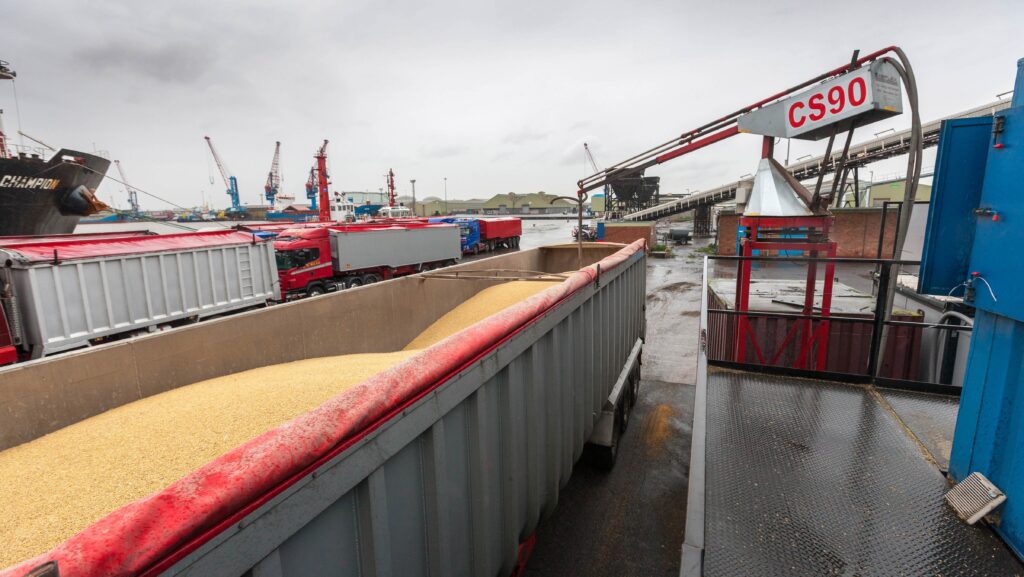Wheat surges above £180/t as Black Sea tensions flare up
 © Tim Scrivener
© Tim Scrivener Old-crop and new-crop wheat futures both jumped by £10/t earlier this week in the UK due to increased conflict in Ukraine and reports of poorer crop conditions in the US.
The May contract peaked at £182.25/t on 22 April, with prices reaching a three-month high. Markets then settled back down to just below £180/t midweek.
Meanwhile, the November 2024 contract climbed to reach £206/t on 23 April.
See also: Hectare launches instant grain payments system for farmers
A grain merchant in the North East told Farmers Weekly there was still a lack of farmers selling at present, despite UK wheat being relatively high by global standards. Feed wheat in Poland is available on farm at a £40/t discount to the UK.
They said: “We have this perception that our grain is cheap, because briefly it was expensive. At this moment in time everywhere else in Europe the price of grain has utterly collapsed.
“By comparison, the UK price hasn’t collapsed as much, which is why processors are often switching to imported product.”
Global drivers
Russian bombing of grain terminals in Ukraine caused both Chicago futures and UK wheat prices to rally earlier this week.
Andrey Sizov, head of market analysis firm SovEcon, said the Odesa region had been attacked by combat drones, with damage reported to both residential and industrial infrastructure in Ukraine.
Mr Sizov added that Polish farmers had lifted blockades at the major border crossing between Poland and Ukraine.
Additionally, grain markets were bullish following news of the US winter wheat crop being revised down by the US Department of Agriculture, with only 50% of the area now classed as good to excellent.
Wheat demand at bioethanol site
Demand for feed wheat at the Ensus bioethanol plant at Wilton, Teesside, is understood to be increasing following major investment.
The plant uses more than 1m tonnes of feed grain a year, sourced from the UK and across Europe. However, traditionally feed wheat has only accounted for a relatively small percentage of this.
A spokesperson for Ensus said: “Our exact feedstock ratios are commercially sensitive, but Ensus remains a major supporter of UK farmers. The company’s investment in the EnPro project – which will result in UK feed wheat producing high-value protein feeds, initially for the fish and pet food markets – will further support UK agricultural.”
